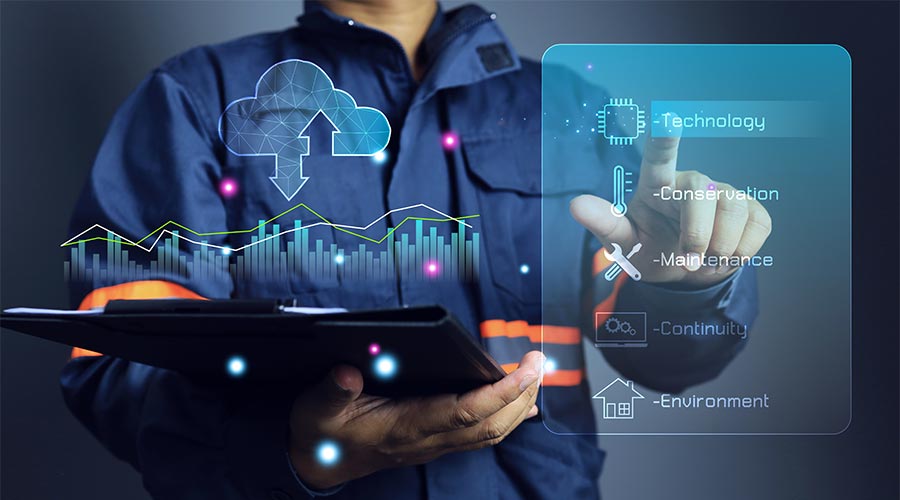
Contributed by Ramiro Álvarez, GRUPO EULEN USA
The facility management services market is estimated to reach a valuation of $670 billion by the year 2032, at a compound annual growth rate (CAGR) of 8.9 percent during the forecast period of 2024-2032. These are very significant numbers that mean that the facility management (FM) industry is going through a very dynamic process. The fact is that the sector is experiencing a pronounced shift towards sustainable, safe and technology-driven practices. Companies that embrace these trends are better equipped to remain competitive and successful in an ever-changing industry environment.
Emerging trends for 2024 include:
Ensure Data Security and Protection
Today, industries are working towards building greater cyber resilience. This involves not only preventing attacks, but also having the ability to respond during an attack and recover quickly after a security incident. Unfortunately, there are increasing cases of data breaches and security threats, so the industry is facing many challenges in finding effective ways to prevent it. According to a Honeywell survey, 27 percent of building facilities managers have experienced a cyberattack on their OT systems in the past year, and 66 percent of respondents say maintaining operations technology (OT) cybersecurity is one of the most challenging tasks for facilities.
“In the face of rising cyber threats, particularly targeting operational technology systems, we are committed to building robust cyber resilience,” says Ramiro Alvarez, VP of Facility Services, Grupo Eulen USA. “Our comprehensive strategies focus on both preventing potential breaches and ensuring swift recovery to maintain operational continuity and safeguard sensitive information, thereby reinforcing our commitment to trust and reliability.”
Sustainability as a Priority
Sustainability has become an essential part of any business. Companies are taking a more integrated approach to sustainability, incorporating it deeply into all their operations. It has become a priority not only for its environmental importance, but also for its economic and social impact. Innovations in sustainable building materials, waste management systems and renewable energy solutions are leading the way. Implementing solar panels, and advanced insulation solutions are perfect examples of how buildings can reduce their environmental impact while saving on long-term costs.
"By prioritizing sustainability, we not only reduce environmental impact but also drive long-term cost savings for our customers, reinforcing our commitment to responsible and efficient service delivery," notes Alvarez.
Artificial Intelligence and Operations Optimization
The integration of advanced technologies such as the Internet of Things (IoT), artificial intelligence and data analytics is becoming an essential part of optimizing facility operations and improving occupant experiences. AI is steering in a new era in the FM industry and plays a crucial role in predictive infrastructure monitoring. For example, early problem detection, using AI, can prevent major incidents and optimize maintenance.
Training — Key to a Strong Workforce
There has not been a labor shortage crisis like the current one in almost a century. These shortages are costing companies a good deal of money in increased wages and salaries, as well as supply chain disruptions. The only solution to not overpay employees is focusing on their training. In a time when employees want to feel valued and are increasingly demanding, the industry trend is to look internally and help employees enhance their careers giving them the tools to grow and acquire more skills.
Inclusion
More than ever, facility managers need to take into account elements such as inclusive language as well as diversity of beliefs and sexual orientation. This will reduce employee turnover and lead to increased creativity, greater innovation, greater profits, and higher employee engagement.
User Experience
How can businesses deliver a great experience in hybrid workplaces? The idea is to integrate facility management software with other tools or apps. For example, to reserve conference or meeting rooms, use communication tools to receive feedback, etc. By using IoT-based insights and tenant experience solutions, facilities management managers can monitor and improve the overall well-being of their tenants. This will help create a positive and productive environment for everyone, even in the face of a hybrid work model.
Mobile Devices and Digital Documentation
With the increased use of mobile devices, facilities management managers are able to access and manage all aspects of building operations. This includes monitoring energy consumption, scheduling maintenance and tracking asset performance. Also, the FM is adopting a paperless approach and digital documentation is replacing traditional systems. This improves efficiency and reduces the risk of errors. In addition, the use of software for building operation and FM allows managers to communicate with occupants, providing them with information and updates in real time.
As we move into 2024, it is clear that innovations in facilities management are shaping a more efficient, sustainable and adaptive future. Intelligent automation and sustainability are not just temporary trends, but fundamental pillars in the evolution of the industry. For professionals in the sector, keeping up to date with these trends is essential to successfully lead the transformation of work spaces.
Sources:
marketresearchfuture.com
mordorintelligence.com
blog.infraspeak.com
As VP of Facility Services at Grupo EULEN USA, Ramiro Álvarez collaborates with clients and organizations to identify highly effective facility services solutions, drawing from his extensive experience in staff mentoring and development, top-level performer recruitment, and innovative problem-solving.
posted on 7/29/2024

 Celebrating BSCAI's 60th Anniversary eBook
Celebrating BSCAI's 60th Anniversary eBook The Down and Dirty on Cleaning in Virus Season
The Down and Dirty on Cleaning in Virus Season How Surfactant Use is Expanding in Commercial Cleaning
How Surfactant Use is Expanding in Commercial Cleaning